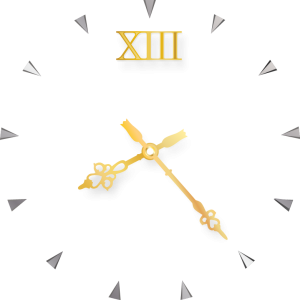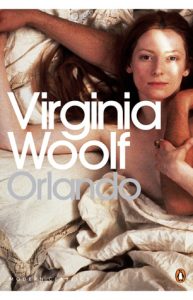Orlando – Impressions
25 April 2017
Virginia Woolf – Penguin Books 1993 edition (reprinted in Penguin Classics 2000)
Back of the book description: “Orlando – the protagonist – begins his life as a young sixteenth-century nobleman, then gallops though the centuries to end up as a woman writer in Virginia Woolf’s own time”.
I dislike Virginia Woolf. Well, more accurately I dislike her writing. I had studied ‘To the Lighthouse’ as a compulsory text in college, and although I understood the themes of passage of time and changes (or their lack of) I didn’t like that book. The text didn’t explore its main themes as deeply as it could have had. It didn’t do it for me.
Of course, there are plenty of people who admire her work. Not only that, she was a prominent metropolitan individual both as a female writer and as a part of the Bloomsbury group: perhaps that’s why she’s a ‘classic’.
At the time of studying, having to read classics and analyse them to death destroyed my will to read in general. However, a year or two later I decided to give other book by Woolf a chance. I picked up Orlando in the bookshop giving away to the intrigue of gender and identity swapping that was promised on the back.
The book is intended as an intimate fantasy-letter for Woolf’s close girl-friend Vita Sackville-West (who was a prominent personality in her own right). Vita’s family history was rich and old, as any noble family house’s would be. The protagonist’s adventures are very loosely based around that history. The narrator, or ‘the biographer’ tells us that the aim of the book is not to relate accurate events, but the thoughts and experiences of the hero. It succeeds on that level, I just think the hero is deeply unrelatable.
Chapter 1:
Orlando as a boy is a picture of rosy cheeks and wealth. He’s born into status and wealth, and is immediately favoured by the queen. His reputation and funds give him the opportunity to do anything throughout his tender age, and he discovers that all he wants to do is to hang out in dirty pubs with poor poets and playwrights because the grime of poverty is much more Romantic than court intrigue or marrying respectable damsels. And then one winter day he meets Her. The Russian princess. Who is over on her political holiday and is so different, so charming, so..and he is so in love with her! From knowing her for like couple of weeks! So in love! Naturally, she dumps his arse the first day her ship can leave. Naturally, it breaks his little heart. So much so he becomes sick and faints at the sight of snow, or ships or fur hats.
You were a holiday romance, get over it. You can get over it with any of the ladies the book claims you have all the fortune with.
Chapter 2:
Orlando is sad. He mopes for ages. He gets some dogs. He writes the Oak Tree, and a bunch more (emotional poetry about stoic lone-wolf generals in far off lands no doubt). He spends half of his fortune revamping his family estate. He decides that love is not his calling (having experienced it once), and poetry is. He remembers the struggling artists. He goes to one of them called Greene with doe-eyes looking for his approval, for Greene knows so much about art and writing and literature – or maybe enjoys powdering the ears of rich patrons – only for Greene to stomp Orlando’s work into dirt with the red ink of judgement. Breaking his heart second time over.
His work was probably crap. Anybody’s first body of written work lacks polish – be it school work or artistic work. It’s garbage and awful, because we do not know what methods or procedures are or what an audience is. That’s nothing to say of the critic Greene, who probably has an agenda to be better than anyone, to demerit any competition and only grudgingly admit that other people’s ideas maybe may be almost as brilliant as his.
At the end of the chapter some Archduchess Harriet tries to get Orlando to tie the knot together, but she’s irrelevant and boring.
Chapter 3:
Being sick of being a rich person with normal struggles, Orlando decided he had enough of England and goes to be an ambassador in Turkey. And marries a gypsy? And throws lavish parties. One of the parties goes a bit awry when the embassy is attacked by the rebellion and much of the building is burned down. Orlando miraculously survives via a trio of…hallucinations? Concepts? Ladies of Chastity, Purity and Modesty. A mythical bullshit force that turns Orlando into a woman.
And then Orlando is just a woman, just like that. She didn’t perceive it as odd or strange or as a shock to her system, just got dressed quite casually and left with the gypsy that was waiting for her outside with a get-away donkey. And she got away.
She lives a very Romantic gypsy life for a while: the stars, the goats, the immediate connection to Nature. And then she leaves to her estates because she missed England and writing.
Chapter 4:
Orlando was now a woman! She was perplexed about flirting with the opposite sex. She was perplexed that people’s attitudes to her were different.
But it’s hardly surprising. Society existed for centuries, we are born into a world of stereotypes and stratas and demographics and other boxes. A reasonable person of either gender understands that there are differences between sexes just through personal experience.
Orlando, as a man, could have not treated women and men equally. He woke up being a she, and is suddenly surprised that she’s treated differently. She might have the same motivations – to write poetry, but she simply cannot be the same person: societal norms would shape her actions and decisions one way or another.
She was also sued for all her wealth, because at the time women didn’t have equal inheritance rights as men did. Jokes, women didn’t have any. Anyway, she still had enough money to make it go away and have a place to live afterwards.
At some point in the chapter some Archduke Harry tries to get Orlando to tie the knot together, but he’s irrelevant and boring.
She goes to some parties, muses on it. Orlando ponders about society with same profundity somebody would say that their favourite thing to do is ‘to people watch’. She endures tea ceremonies because for a moment she imagines she likes listening to poets again. She meets ladies of the evening, and again, enjoys their company through the Romantic prism of poverty – this time from a female perspective: never judging their work, but never quite getting behind their life stories either. She goes to bed, and witnesses how Eighteenth century turns to Nineteenth century.
Chapter 5:
The Oak Tree – Orlando’s magnum opus is mentioned. She gets obsessed with the idea of a wedding ring. She didn’t have one, but everyone else does. It upsets her. It upsets her so much, that she runs out of her estate in madness, trips and falls and decided that she is dead. Here, she meets Marmaduke Shelmerdine and they instantly get engaged. He goes away on his mission.
What if we started with a woman who ended up a man, would he be as obsessed with marriage? If the protagonist, ostensibly, doesn’t change personality, would he run out of his house mad with idea that he isn’t wedded to and that he should just die under a tree?
Chapter 6:
Orlando writes more poetry. She notes that a lot of men think about women being created only for love and not for thinking. Her manuscript is taken away to be published, she gives birth to a son. She buries the Oak Tree under the oak tree, and meets Marmaduke flying down to her a plane on a happy midnight of Thursday, the eleventh of October, year Nineteen hundred and Twenty Eight. The end.
See, my issue is that Orlando never struggles. Throughout this journey, we do not see a development of this character as a person. Yes, a broken heart there, and a tapered ambition here, but overall, what does Orlando do the most? Run away. England is too much? Run away to Turkey. Turkey is too much? Run away to England. Personal relationships too much? Get dogs. Personal relationships not enough? Run away to die under a tee.
Marmaduke’s gender fluidity is also highly questionable. She was apparently a woman, before waking up one day a man. How he felt, or what he did about it is irrelevant. There’s no demonstration of any traits that are inherently feminine – we are simply told he was a she.
There is a throwaway line about how Orlando, centuries later ‘sees’ the Russian Princess (old and fat now) and gives her a nod of understanding. Understanding of what? Is it forgiveness on Orlando’s part or just…time has passed so it dulled her memories? Or is it an understanding based on gender? Boy, do I have a bone to pick with that one.
This gender change (personality doesn’t change) theme is an excellent platform to explore the difference between genders and social constructs based on each. And in this book, they are simply observed, but not commented on. Orlando isn’t outraged that she has to wear skirts all the time, she isn’t angered by what other men say about women, she isn’t grieving about benefits of being a man in her past. There’s an observation about different layers of society, there’s an observation about being assigned a different role as a woman, there’s an observation about dogs being dogs.
Truthfully, the ‘biographer’ succeeds relating only what they found most important: experiences and surface feelings of their subject (Orlando). However, they also succeed at making the story and the main character feel both sexless and irrelevant.
The book is bollocks.

